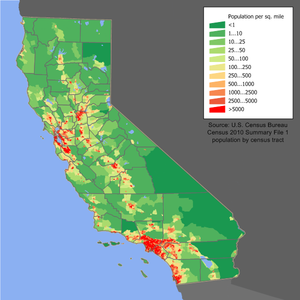 Image by maryaustinphoto via Flickr
Image by maryaustinphoto via Flickr

Sunday, June 27, 2010
A Great Candidate for Governor of South Carolina
Sunday, June 20, 2010
Risks Socialized Once Again
 Image via Wikipedia
Image via Wikipedia
Sunday, June 6, 2010
Can Democracy and Recreational Drug Use Coexist?
 Image via Wikipedia
Image via Wikipedia
More controversy in California about the legal sale of marijuana.
This is just one of many issues that affect quality of life in neighborhoods. What's the best way to make these sorts of decisions?
I think the real solution is letting each small area within cities decide for themselves what businesses or activities are permitted. Ideally, people should be able to buy property with the assurance that certain things won't be happening in the area, unless a high percentage of residents vote to allow it. And currently legal things cannot be made illegal without a similar high percentage.
Democracy is not always a good thing and having your rights changed by simple majority vote is often quite bad. Contracts on the other hand create a lot of stability and thats a good thing for neighborhoods. We need rules that can only be changed that can only be changed by 70, 80 or 90% of the voters in a neighborhood.
Or perhaps, how many people vote for a measure determines how quickly it is implemented. If 95% vote for it, a measure might be implemented right away. But if only 51% do, it might take effect in 5 years, giving people plenty of time to sell and move away.
We need more local control, micro-local really. Many different kinds of neighborhoods make a city interesting and give all kinds of people the space they need. Those who don't want to be around drug use and those who want to both need to be accommodated and this is one approach.
You can't even enforce a lot of laws like this without the cooperation of citizens anyway, so why not align the rules with the neighborhood instead of trying to do the opposite, which only produces soul-crushing uniformity?
The Libertarian Way to Create Jobs
 Image by elycefeliz via Flickr
Image by elycefeliz via Flickr


![Reblog this post [with Zemanta]](http://img.zemanta.com/reblog_e.png?x-id=7ab9732f-56a8-44e0-9f6b-68a3aade9888)
![Reblog this post [with Zemanta]](http://img.zemanta.com/reblog_e.png?x-id=cf3de522-bcb3-4cf3-a158-00fd9998b401)